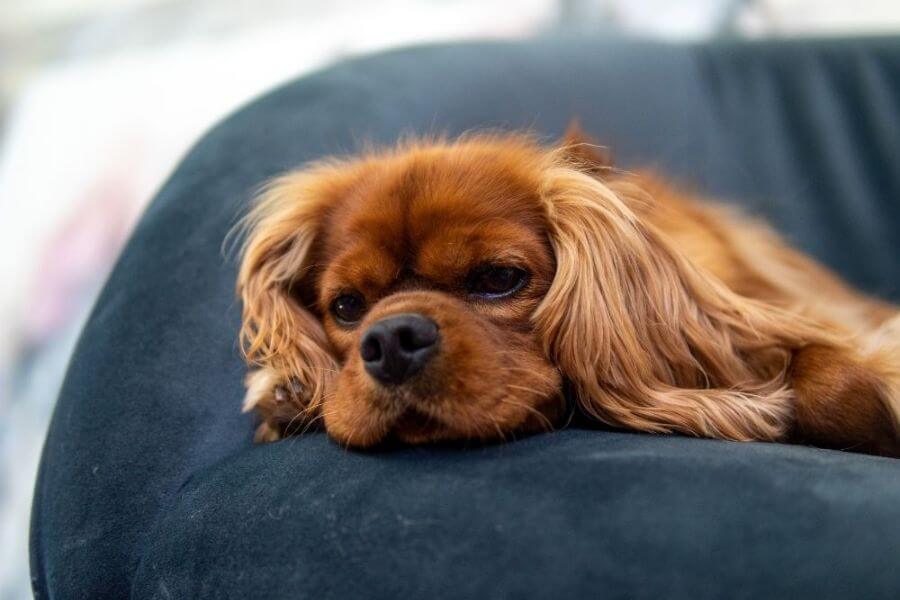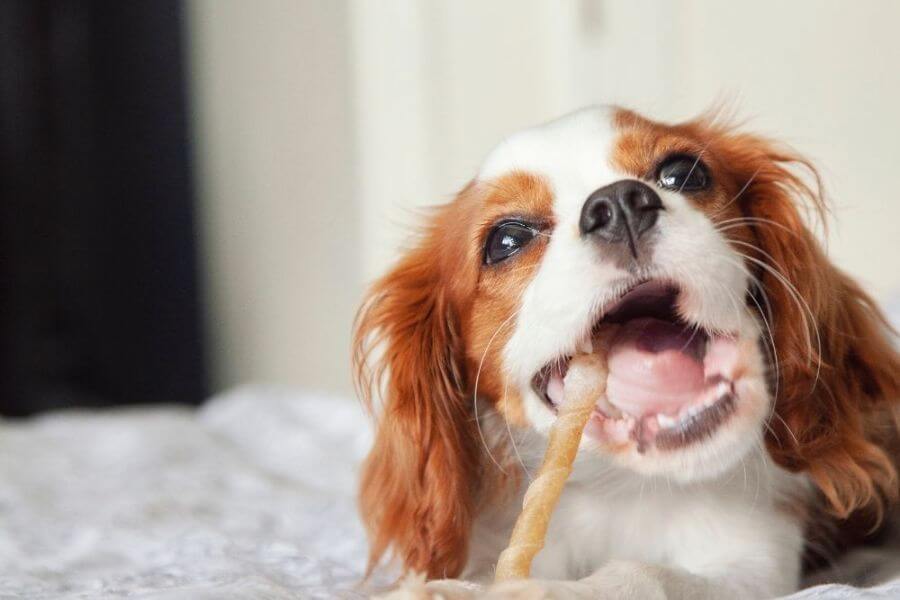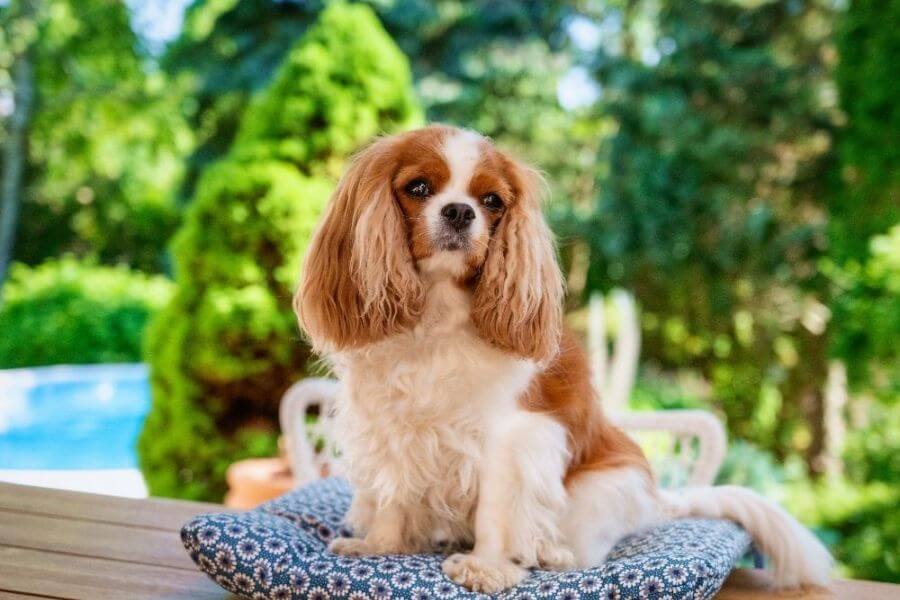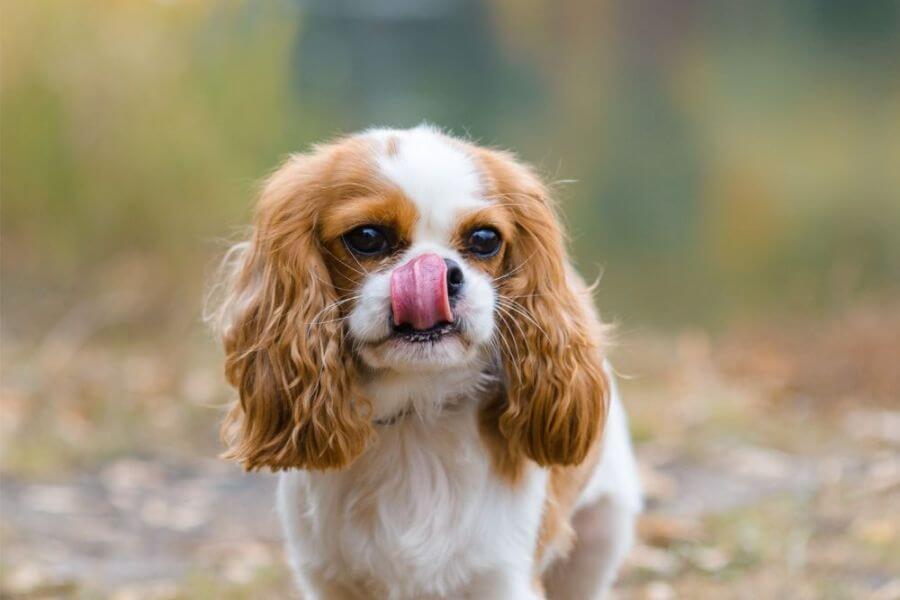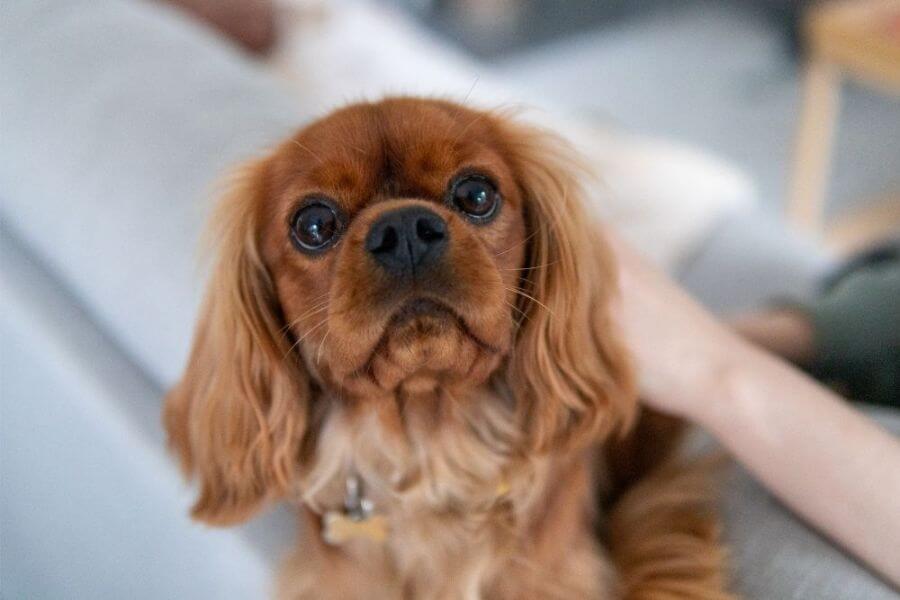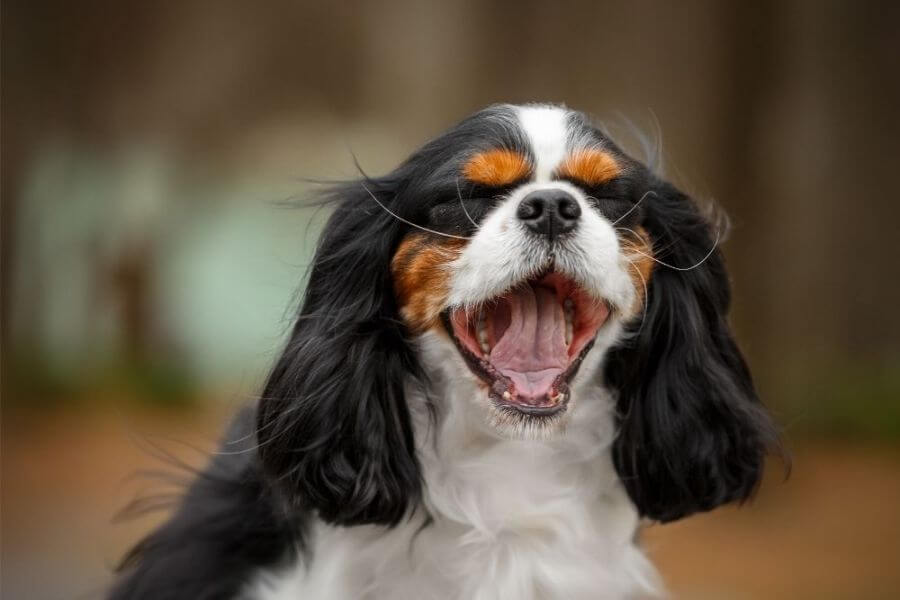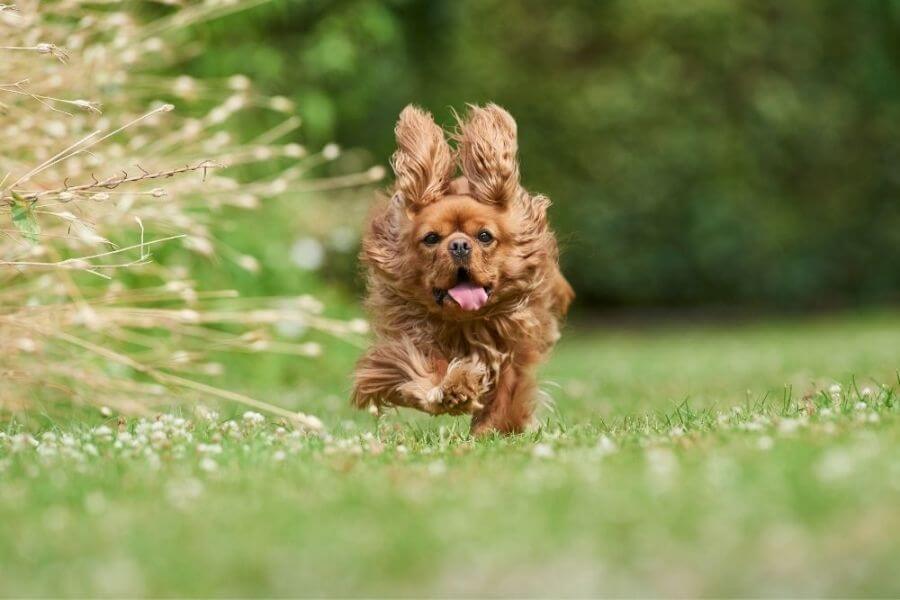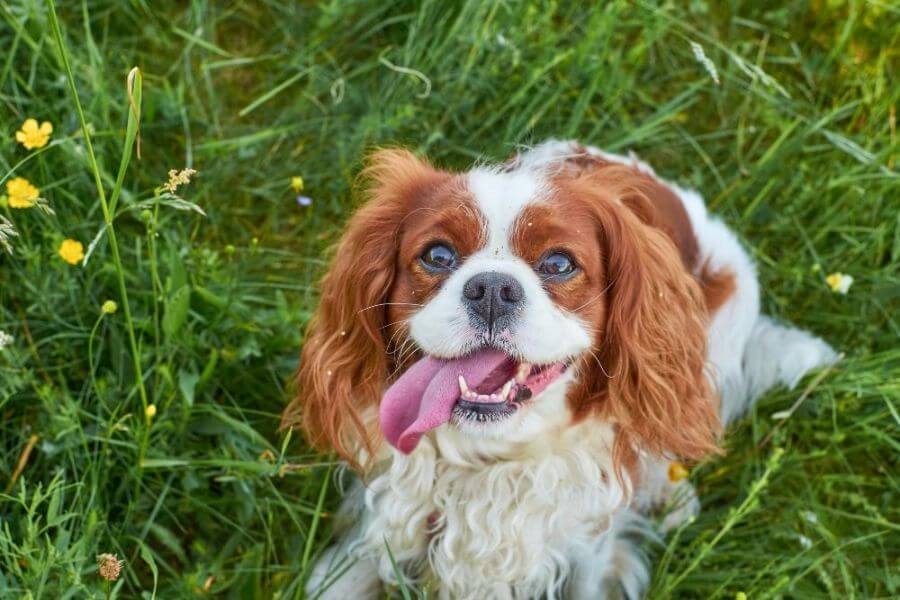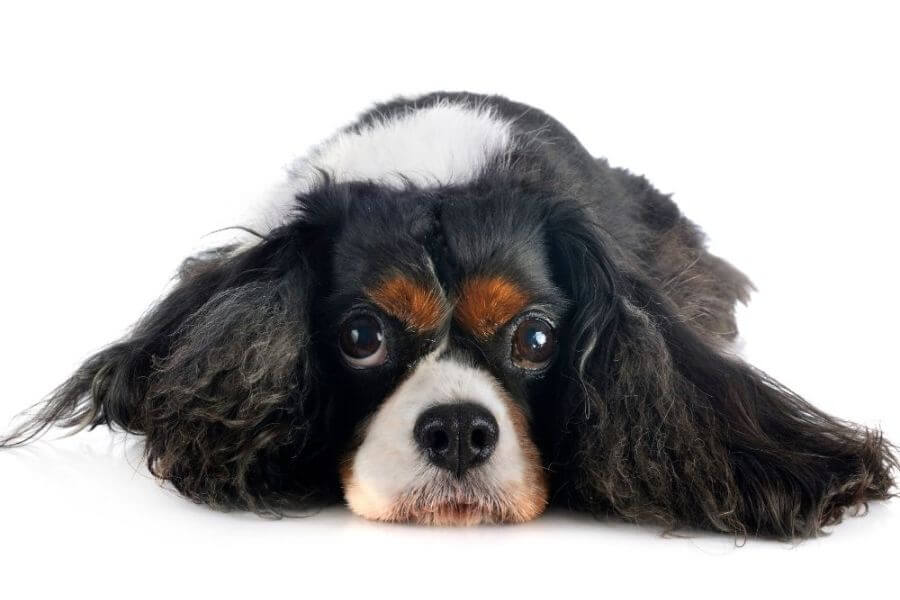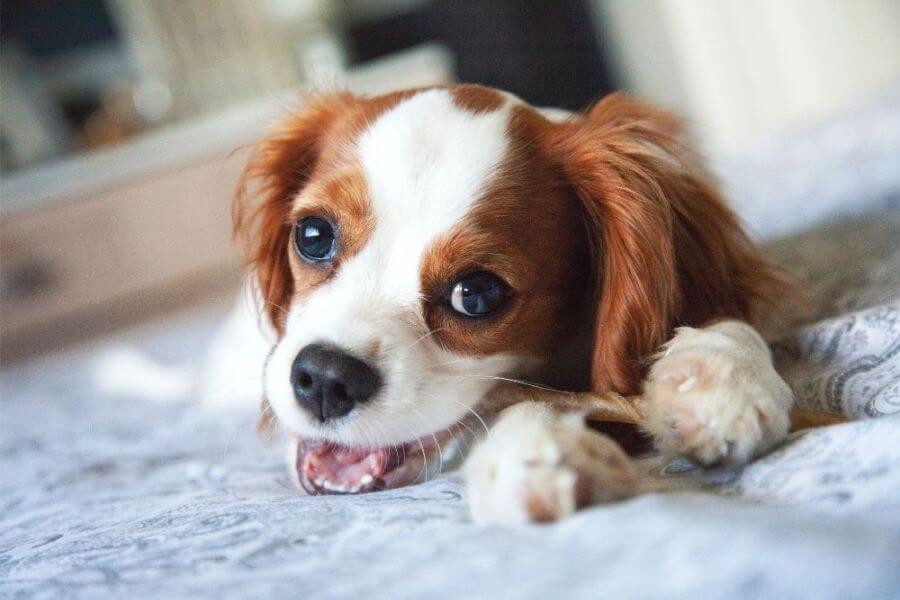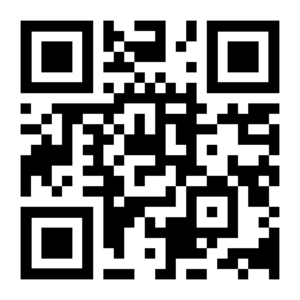Cavalier King Charles Puppies For Sale

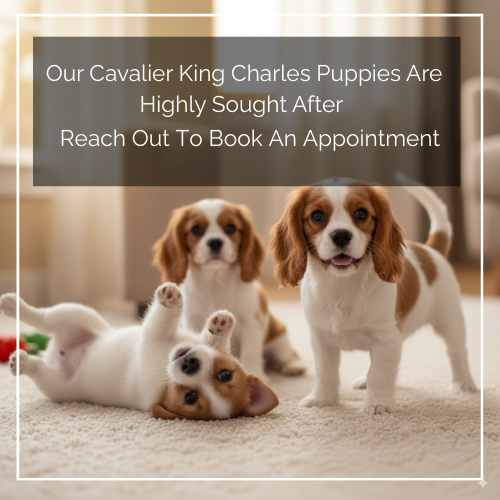
Table of Contents
No List Found Puppies
Cavalier King Charles Puppies For Sale
All of our puppies at William Goh’s pet farm come with a free deworming, microchip, vaccination & health check.
Cavalier King Charles that found a loving home
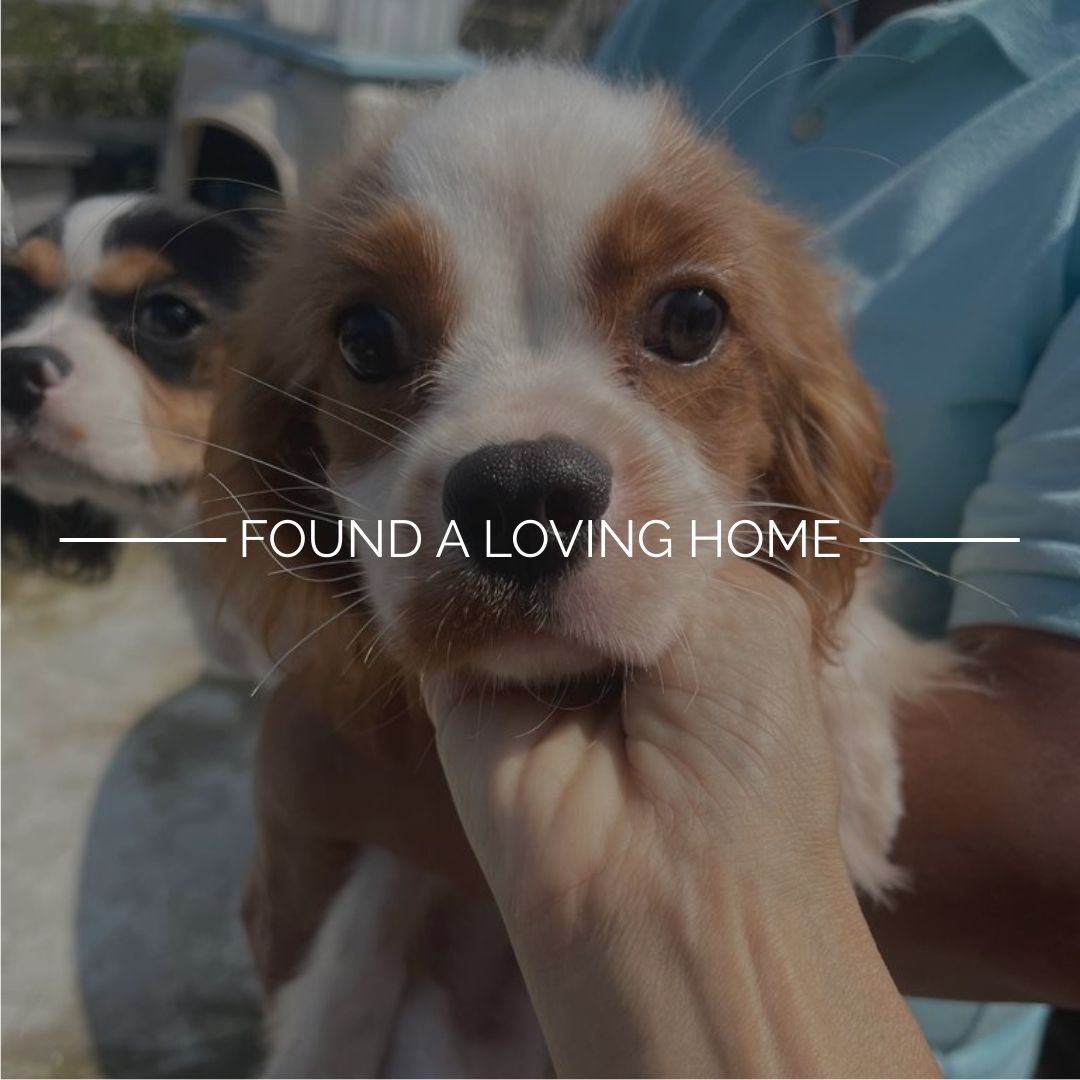
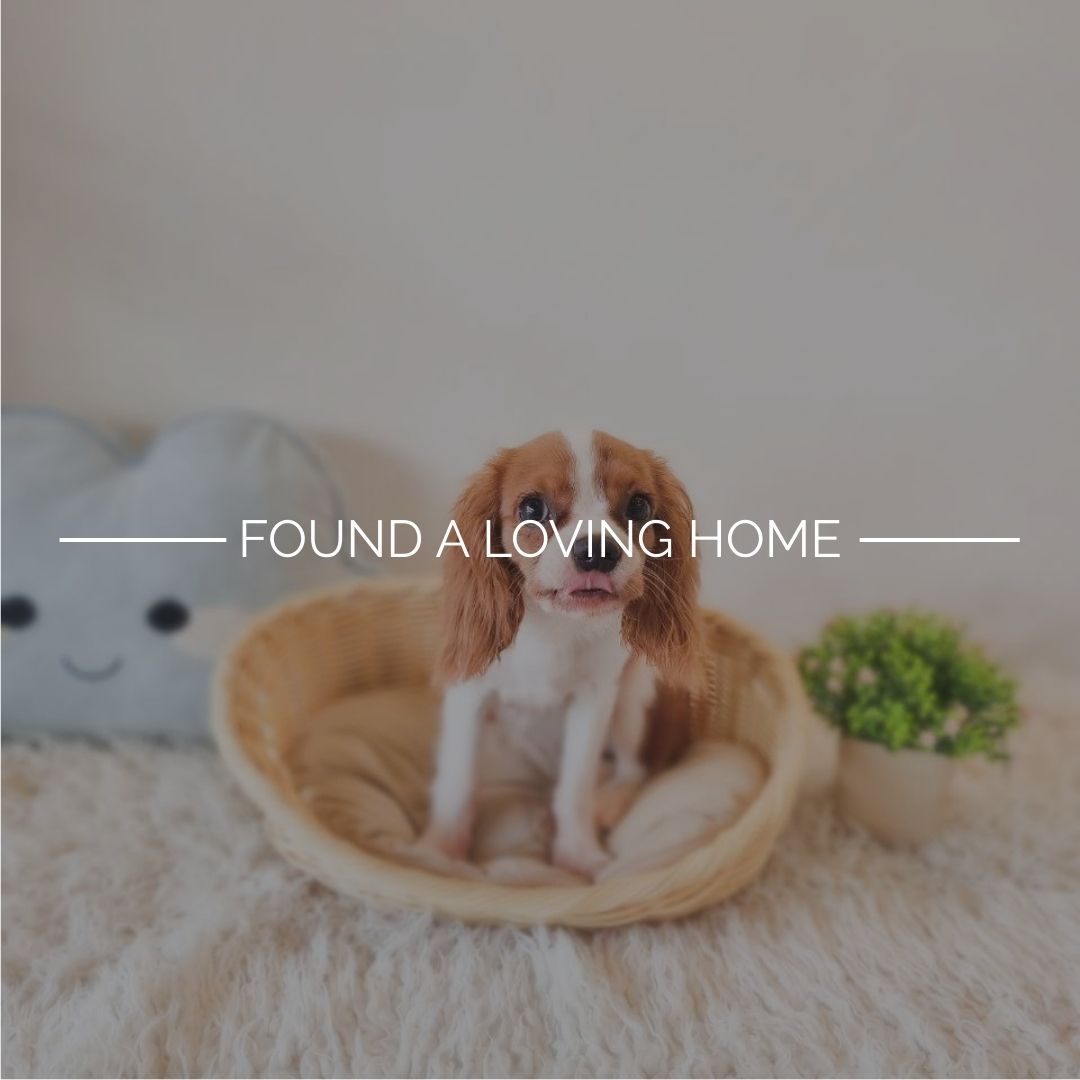

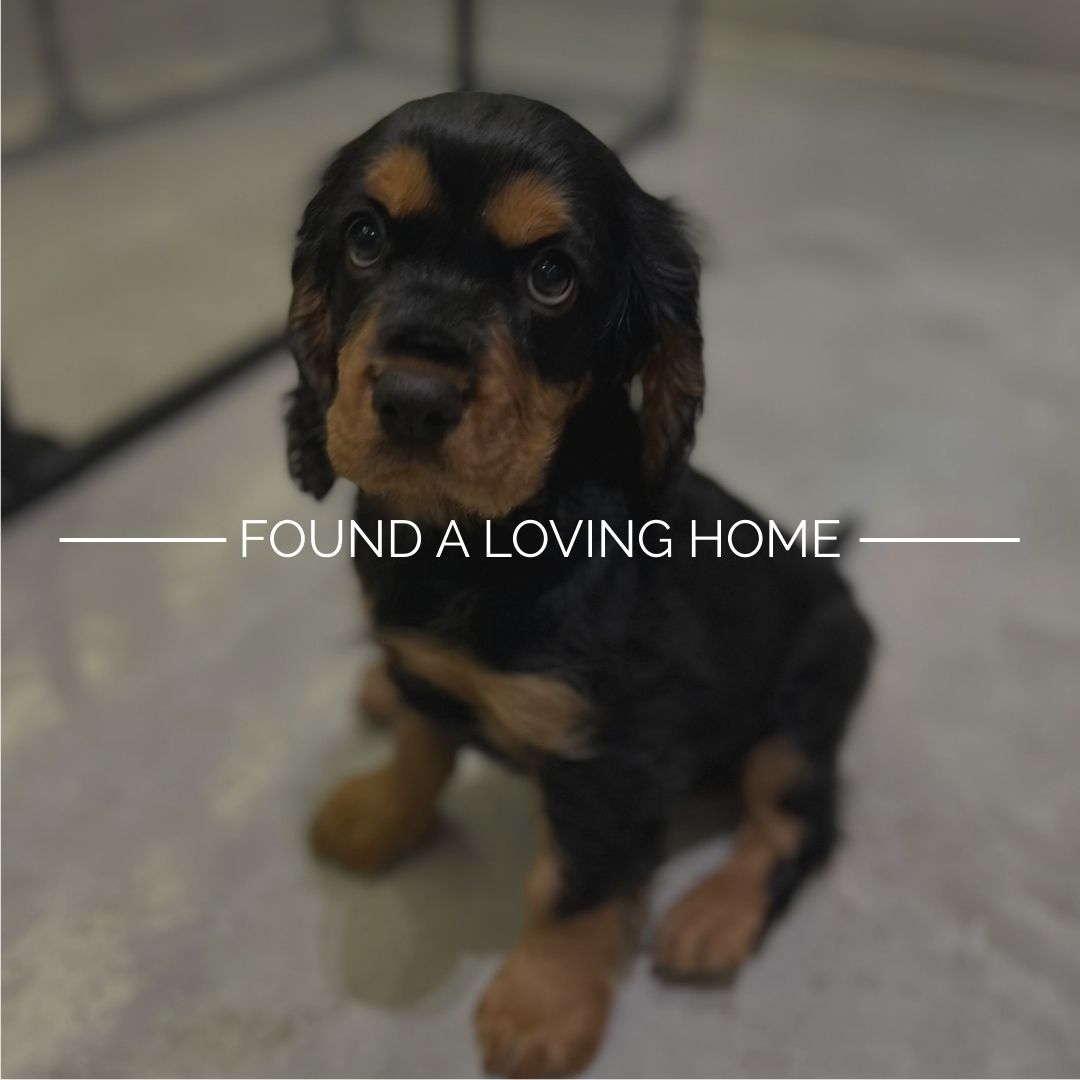

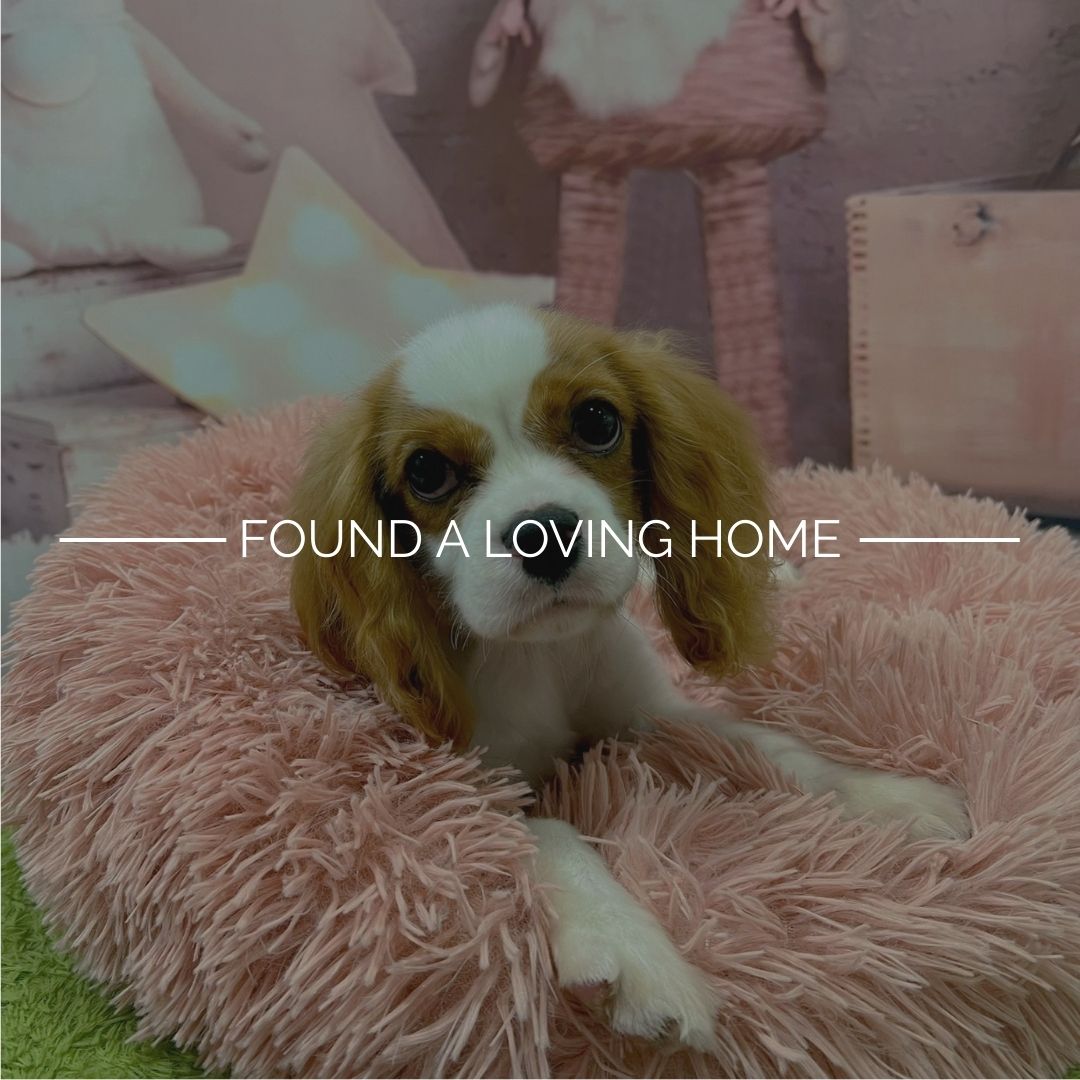
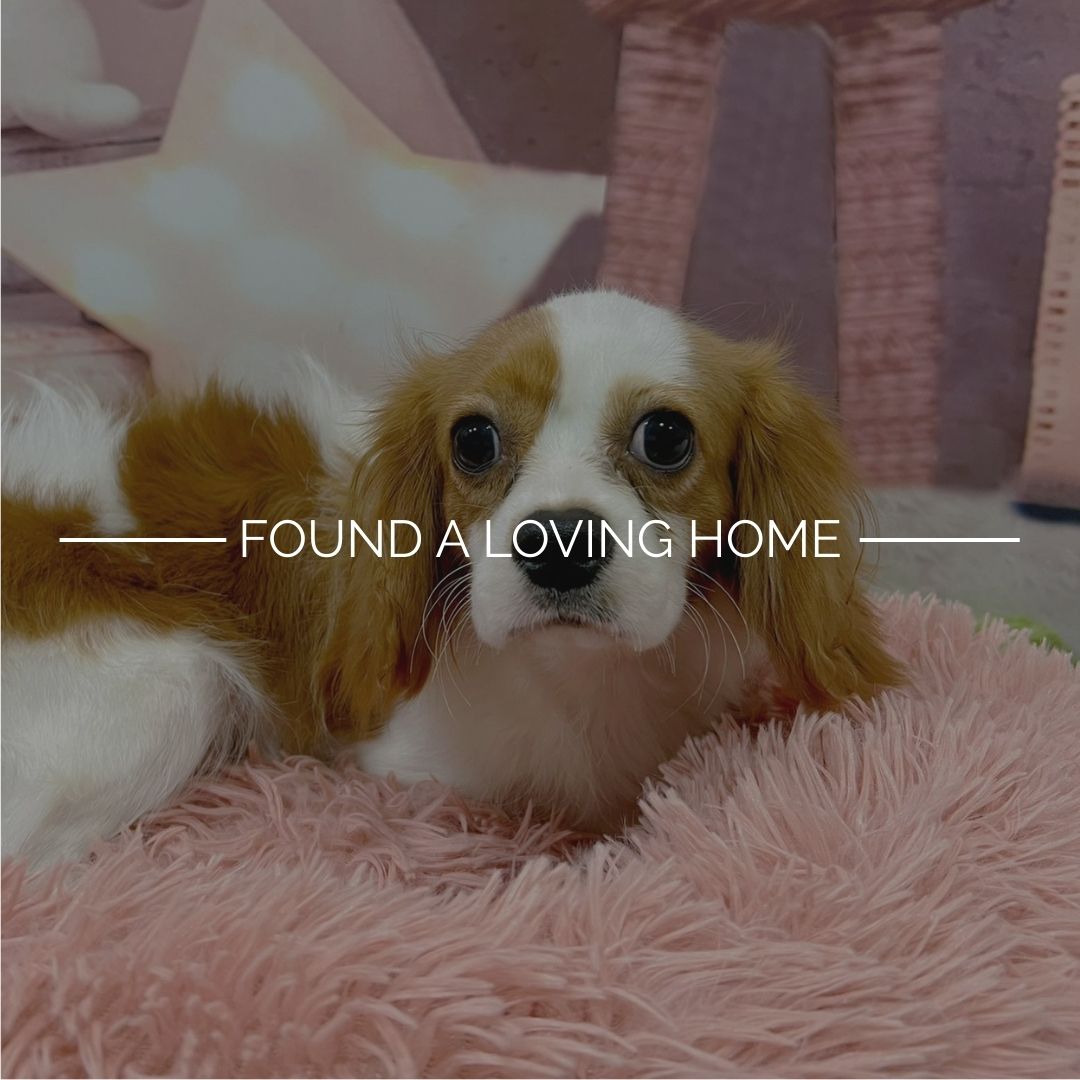
Use Web Whatsapp? Click Here
Introduction
They were originally bred as lap dogs for nobility, designed to provide comfort and warmth.
Their name honors King Charles II of England, who was rarely seen without his faithful spaniels.
Here are some popular Cavalier King Charles Puppy names that reflect their royal heritage.
In fact, these gentle aristocrats were so cherished that they appear in numerous historical portraits alongside European royalty, showing their longstanding popularity.
Cavaliers are incredibly affectionate and make excellent family companions.
They tend to be friendly with everyone, including strangers and other pets, making socialization easy.
If you want a loyal, loving dog with minimal separation anxiety and easy puppy training, a Cavalier King Charles Puppy may be perfect for you.
If you’re looking for Cavalier King Charles Puppy For Sale from responsible breeders, read on.
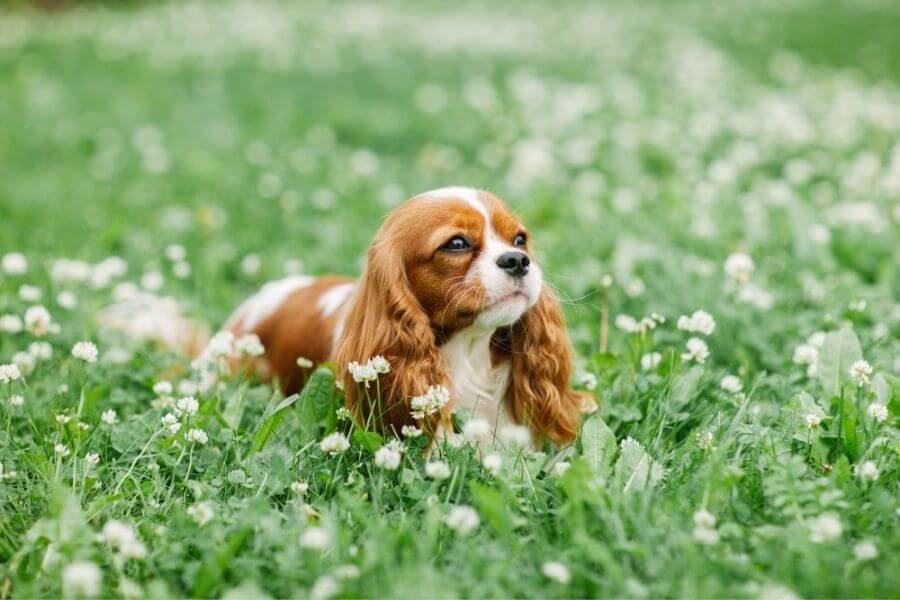
Highlights
Breed Information
Weight (male) : 5-8 KG
Weight (female): 5-8 KG
Life Expectancy: 12-15 years
Group: Toy Group
Temperament
Gentle
Playful
Intelligent
Social
Adaptable
Characteristic
Friendly with Kids and Other Pets
Energetic but Enjoys Relaxing Too
Easy to Train and Eager to Please
Elegant and Graceful Appearance
They are known for their compact size, silky coat, and affectionate nature, making them excellent family companions with a life expectancy of 9-14 years.
Due to their brachycephalic features, they may experience breathing fast during hot weather and require proper vaccination to prevent parvo virus.
Cavalier puppies are perfect for various living situations: they adapt well to apartment living while still enjoying dog runs and puppy exercise to prevent obesity and puppy bloating.
Investing in pet insurance is recommended as the breed may develop conditions like hip dysplasia or heart issues.
Potty training and leash training should begin early, along with regular grooming and dental cleaning to maintain their health and prevent smelly dog issues.
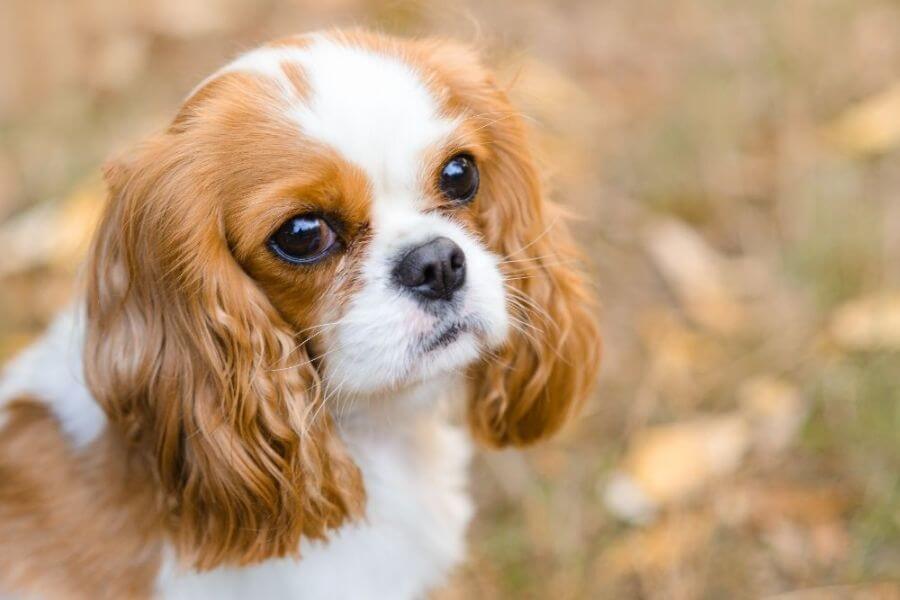
Grooming
Regular brushing prevents matting, especially behind the ears where their luxurious coat tends to tangle.
Bathing should only happen every 6-8 weeks to preserve natural oils, though puppies experiencing zoomies in mud might need occasional spot cleaning.
During grooming sessions, check for ticks, eye infections, or cherry eye – a common concern in the breed.
Pay attention to nail issues and ear cleanliness to prevent yeast infections.
Many Cavalier owners find professional dog grooming beneficial every few months, though regular at-home maintenance keeps your puppy looking regal.
Proper grooming time also allows you to monitor for concerning symptoms like pale gums or signs of pain that might require a visit to 24-hour vet clinics.
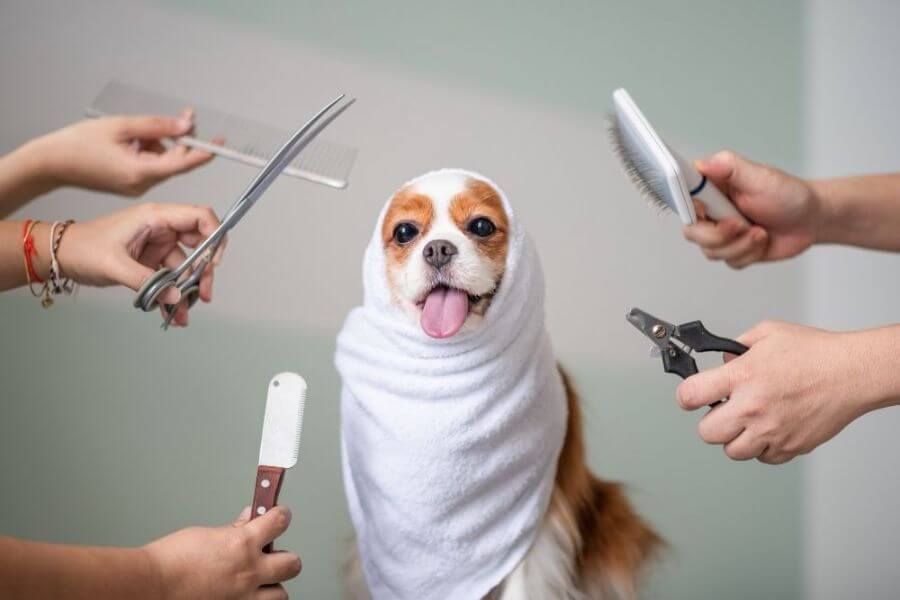
Personality
These charming puppies are eager to please, adaptable, and deeply devoted to their families.
While they may occasionally show stubbornness during training, their sweet temperament makes them a joy to have around.
Cavaliers are described as loving, playful, and patient – perfect traits when introducing a puppy to older dog companions.
They’re bred for companionship, which is why they form strong bonds with their owners and may experience separation anxiety if left alone.
Cavalier King Charles Puppies thrive on attention and if not properly exercised, may develop behaviors like puppy whining or excessive licking paws.
They make wonderful family dogs, adapting well to various living situations including HDB approved breeds categories.
They’re excellent with children and seniors alike, displaying none of the dog aggression seen in some breeds.
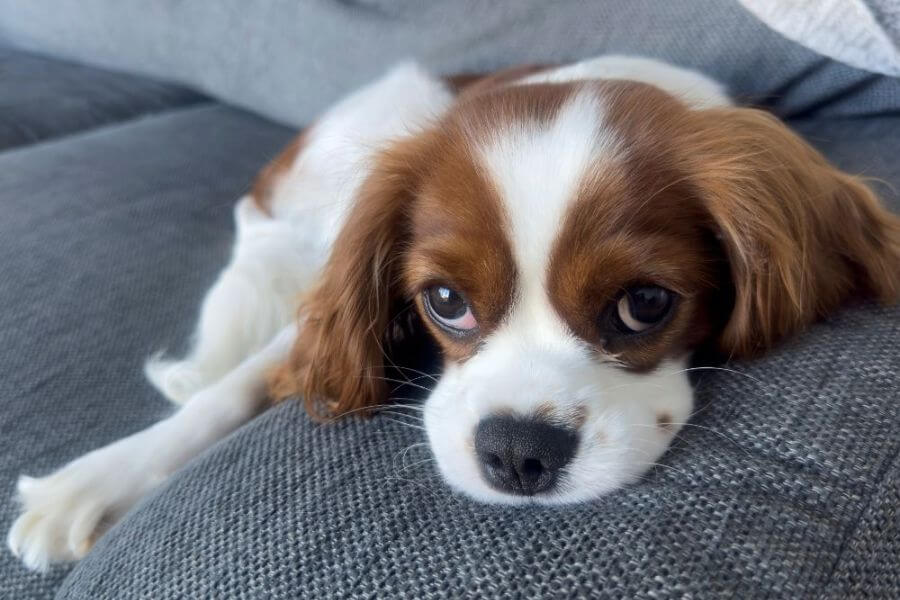
Temperament
These puppies are incredibly social and form strong bonds with their owners, often following them from room to room, ensuring you’re never alone during feeding or when dealing with dog poop cleanup.
Despite their small size, Cavaliers are robust, though they can experience health issues like yeast infections or pancreatitis if not properly cared for.
Early dog training schools can help address potential behavioral issues like puppy biting or excessive puppy barking.
New puppy checklist items should include microchip registration, spaying or neutering plans, and fleas treatment options.
Cavaliers may occasionally experience reverse sneezes or hiccups, which are typically harmless but worth monitoring.
When introducing your Cavalier puppy to an older dog, gradual socialization in neutral settings like dog cafes works best.
Their adaptability makes them excellent companions for diverse households, whether you’re visiting dog swimming pools or dog bakeries.
These puppies thrive on attention and can develop anxiety if left alone too long, potentially leading to issues like panting or not eating.
Regular vet visits help catch potential problems early, from diabetes to eye gunk, ensuring your Cavalier King Charles Puppy remains a happy, healthy family member.
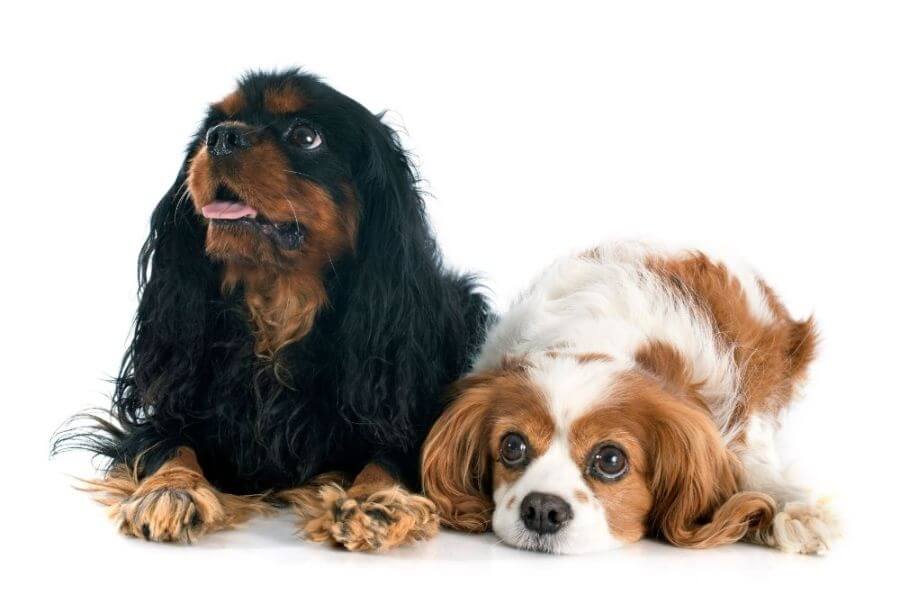
Size
These charming puppies typically weigh between 13-18 pounds when fully grown, with males usually slightly larger than females.
Cavalier King Charles Spaniels come in a compact package that’s neither too small nor too large.
During their growth from puppies to adults, they may experience teething issues and occasional constipation as their bodies develop.
When introducing a Cavalier puppy to an older dog, gradual interactions are key to prevent stress.
Their manageable size makes them easy to handle during dog food transition periods or when they need a pet taxi for veterinary visits.
Despite their small stature, Cavaliers can sometimes develop health concerns like seizures or diarrhea, requiring attentive care.
Their adaptable size means they sleep comfortably in various spaces, though they prefer being close to their owners.
If your Cavalier King Charles puppy is not eating or showing signs of vomiting, consult your veterinarian promptly, as their small size makes them vulnerable to rapid health changes.
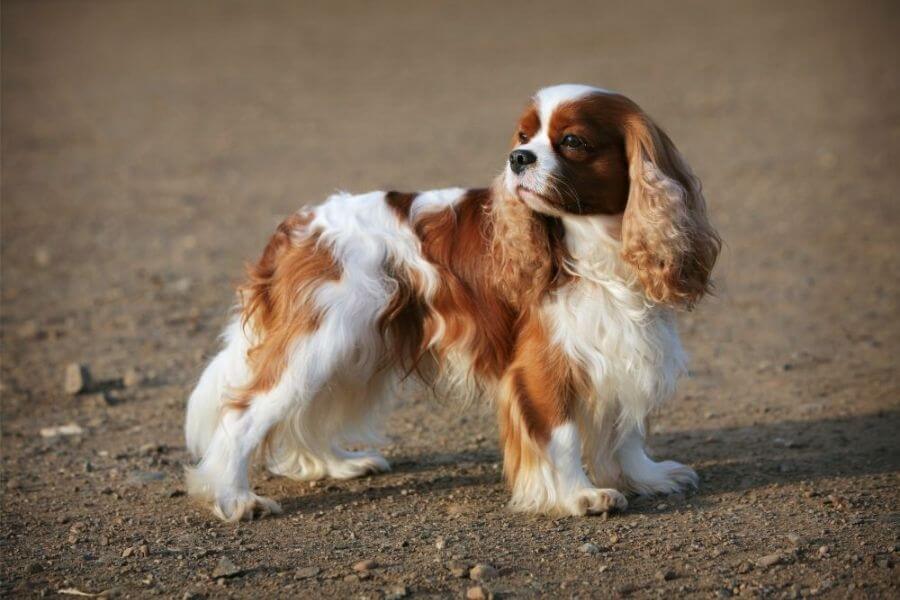
Upkeep
These affectionate pups can be prone to certain health issues, so watch for signs like fever or blood in poop, which warrant immediate veterinary attention.
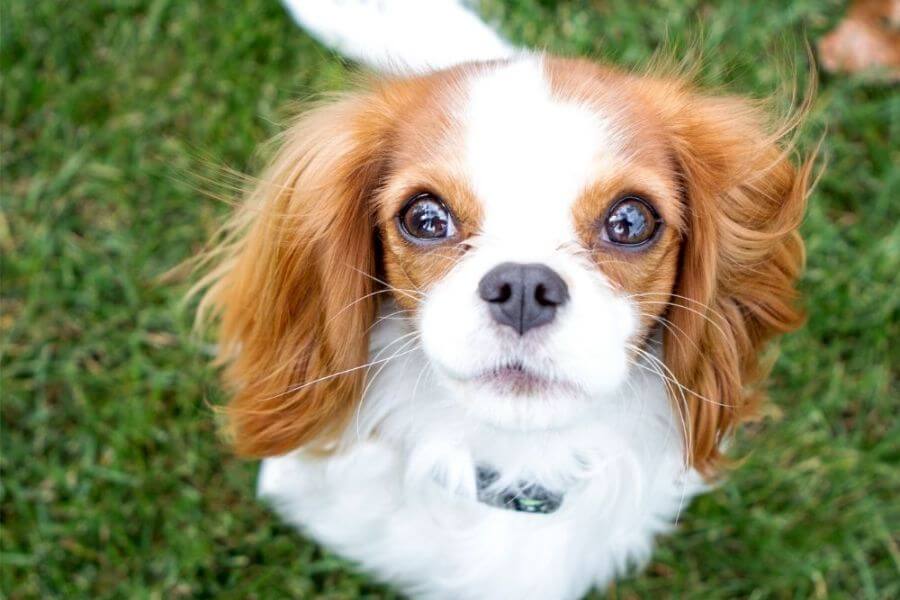
Health
Cavalier King Charles Spaniels are prone to specific health conditions including mitral valve disease, which affects about 50% of Cavaliers by age 5.
They may also experience issues with their joints, heart, eyes, and can develop dog eye gunk that needs regular cleaning.
If your Cavalier King Charles puppy isn’t eating, it could indicate illness, anxiety, or dental problems.
Watch for signs of catching cold, such as sneezing, coughing, or nasal discharge – Cavaliers are sensitive to temperature changes.
Regular check-ups should include examination of anal glands, as impaction can lead to discomfort and infection.
When you first bring your puppy home, teaching your puppy name should be priority – use it consistently and positively.
Cavalier King Charles puppies can develop yeast infections, particularly in their ears due to their floppy nature.
A dog having fun is a healthy dog – ensure your Cavalier has appropriate toys and playtime.
Blood in urine requires immediate veterinary attention, as it could indicate bladder stones or infection.
When you introduce puppy to older dog, do so gradually in neutral territory to prevent territorial disputes.
If neighbors dog barking disturbs your Cavalier’s sleep, consider sound machines to mask the noise.
A sick puppy may show lethargy, loss of appetite, or unusual behavior.
If your dog ate chocolate or dog ate grape, seek immediate veterinary care as these are toxic.
To stop puppy barking, never reward attention-seeking barks and reward quiet behavior.
Delay spaying or neutering until at least 12 months to support proper development and reduce health risks.
Cavalier puppies may experience humping as a form of play or attention-seeking; consistent training helps.
Excessive dog farts might indicate dietary sensitivities common in the breed.
A dry nose isn’t always concerning, but persistent dryness might indicate dehydration.
Consider pet insurance for your Cavalier King Charles Puppy, as breed-specific health issues can lead to significant veterinary costs.
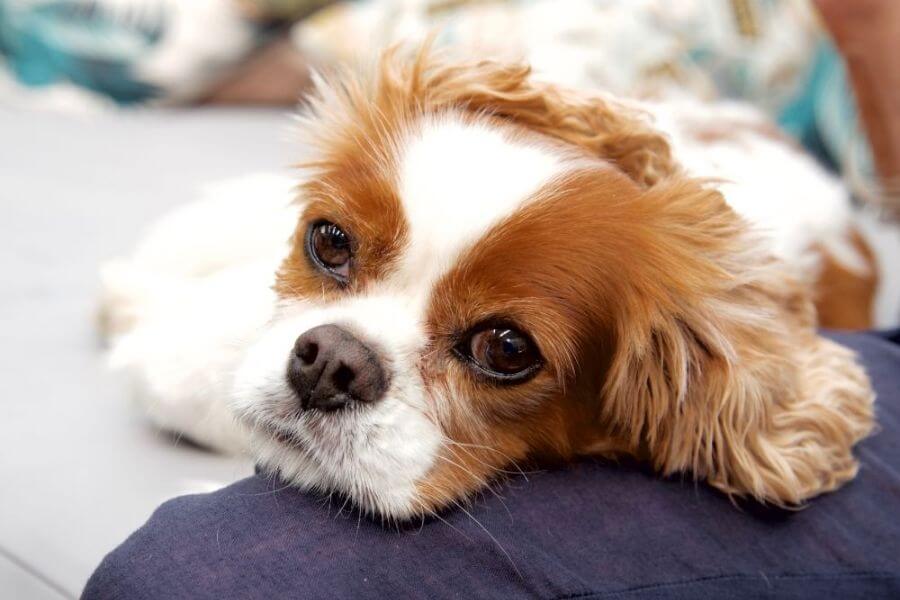
History
Though its ancestors date back to Tudor times, the breed as we know it today was developed in the early 20th century.
Named after King Charles II who adored these spaniels, these affectionate dogs were constant royal companions.
Breed enthusiasts worked to create the modern Cavalier, carefully selecting dogs that resembled those in old paintings.
Cavaliers arrived in America in the 1940s but weren’t recognized by the American Kennel Club until 1995.
During pregnancy, these gentle puppies develop rapidly, which is why proper nutrition is essential if your dog not eating becomes a concern.
When you teach puppy name commands, these intelligent companions learn quickly, making them ideal family pets that require minimal pain relief for training.
Be cautious of yeast infection in their droopy ears and ensure they never dog ate grape, which is toxic.
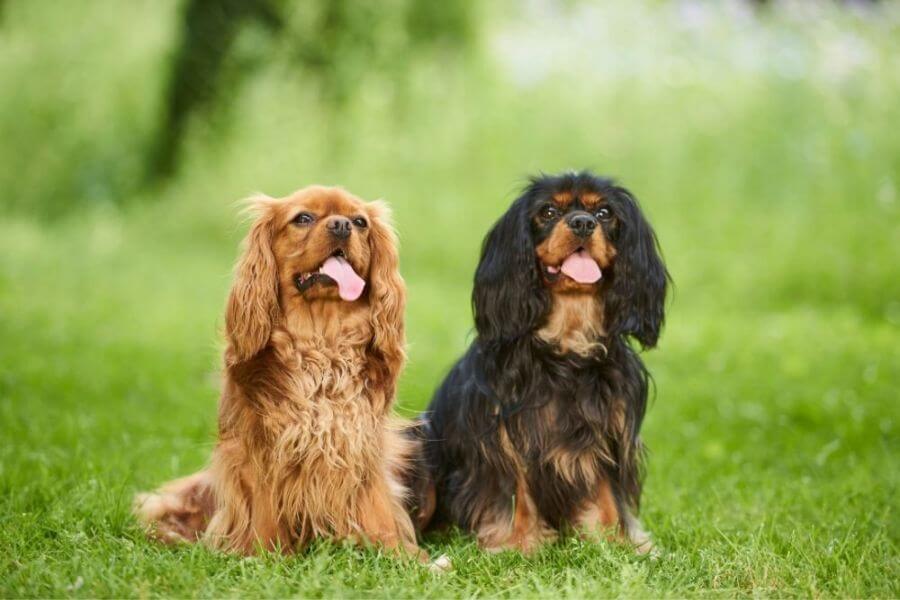
Exercise
While dog parks offer excellent socialization opportunities for your Cavalier King Charles puppy, there are plenty of indoor exercise options if you live in an apartment.
Gentle indoor games like hide-and-seek with toys or short play sessions with soft balls can keep your Cavalier King Charles puppy active when outdoor access is limited.
Proper exercise prevents weight gain, which is particularly important for this breed known for their tendency to become overweight.
If you don’t have a yard, daily structured walks are perfect, keeping in mind that Cavalier King Charles puppies have short legs and shouldn’t over-exert themselves.
Allow your Cavalier King Charles puppy to play freely inside your home under supervision to prevent boredom and unwanted behaviors.
Remember that puppies need appropriate exercise limits—follow the 5-minute rule per month of age, twice daily.
For a 3-month-old Cavalier King Charles puppy, aim for just 15 minutes of gentle activity sessions twice a day to protect their developing joints.
As your Cavalier King Charles puppy grows, you can gradually increase exercise duration while monitoring their energy levels and comfort.
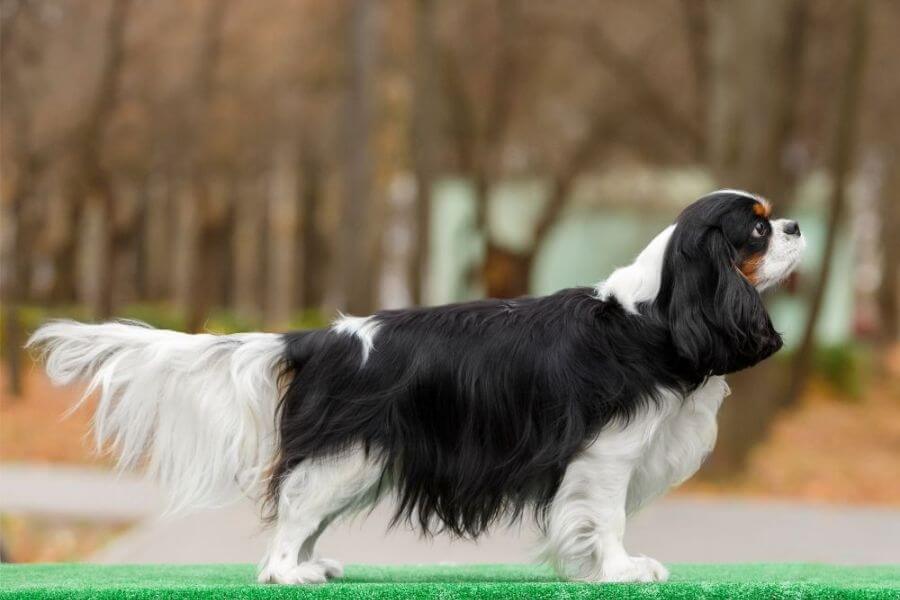
Training
You can either enroll your puppy in professional training classes or take on the responsibility yourself with patience and consistency.
While Cavalier King Charles puppies are eager to please, they can sometimes display a stubborn streak, particularly when they’re distracted by interesting scents or sounds.
These sociable puppies thrive on human interaction, and they typically respond well to all family members regardless of age or gender when properly socialized.
Cavalier King Charles puppies combine an affectionate nature with a playful spirit.
They form strong bonds with their owners and may develop separation anxiety if left alone for extended periods, which can impact their training progress.
For house training your Cavalier King Charles puppy, establish a consistent schedule, watch for signs they need to go outside, use the same spot in your yard, offer praise for success, maintain patience with accidents, and consider crate training for nighttime.
Use high-value treats when leash training your Cavalier King Charles puppy.
Hold a treat close to your side while walking, encouraging your puppy to follow alongside you rather than pulling ahead.
Cavalier King Charles puppies naturally use their mouths to explore their world, but excessive nipping should be addressed early.
While playful mouthing is normal, biting that stems from fear or frustration requires immediate attention to prevent future behavioral issues.
These sweet-natured puppies respond beautifully to positive reinforcement methods, making training sessions an opportunity to strengthen your bond with your new Cavalier King Charles puppy.
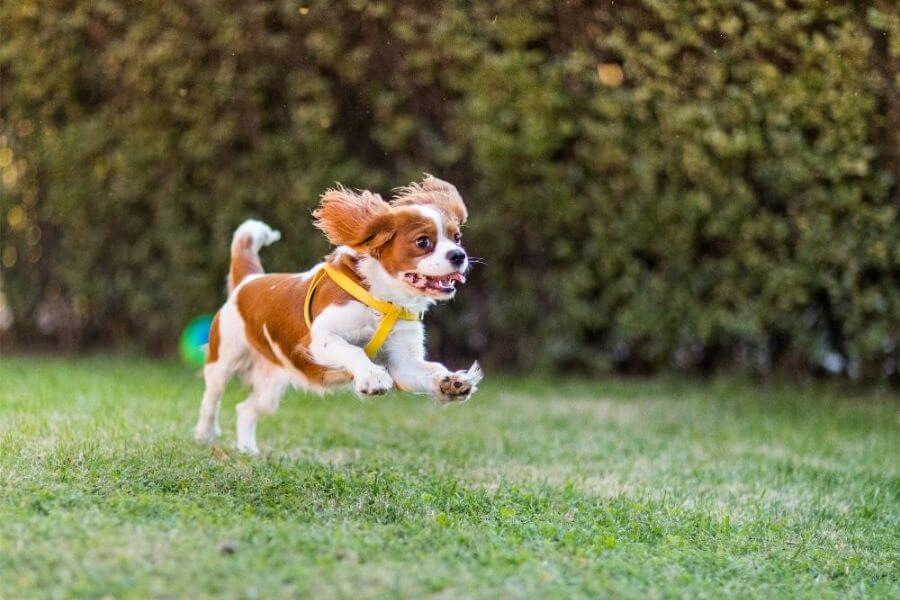
Nutrition
Before bringing your Cavalier King Charles puppy home, consulting with a veterinarian about their specific nutritional needs is essential.
Providing balanced nutrition alongside appropriate exercise helps maintain your Cavalier’s health and prevents obesity, which is particularly important for this breed.
Many Cavalier parents want to give their puppies the best start in life, leading some to consider home-cooked diets.
While preparing meals for your Cavalier King Charles puppy might seem ideal, it’s important to understand that quality commercial puppy food can be equally nutritious when chosen carefully.
Cavalier King Charles puppies should be fed 3-4 small meals daily, transitioning to 2-3 meals as they grow into adults.
Avoid sharing human food with your Cavalier puppy, as many common ingredients like onions, garlic, and foods high in salt or fat can be harmful to their developing systems.
When transitioning your Cavalier King Charles puppy to different food, do so gradually over 7-10 days to prevent digestive upset.
Around 10-12 months, your Cavalier puppy will be ready to transition to adult dog food formulated for small breeds.
To prevent bloating, never feed your Cavalier from raised bowls, avoid exercise immediately after meals, and don’t allow them to eat too quickly.
Foods toxic to Cavalier King Charles puppies include chocolate, xylitol (found in sugar-free products), caffeine, grapes, raisins, macadamia nuts, and raw or undercooked meat.
For special occasions like your Cavalier’s birthday, consider puppy-friendly treats from specialty pet bakeries that understand the dietary needs of this beloved breed.
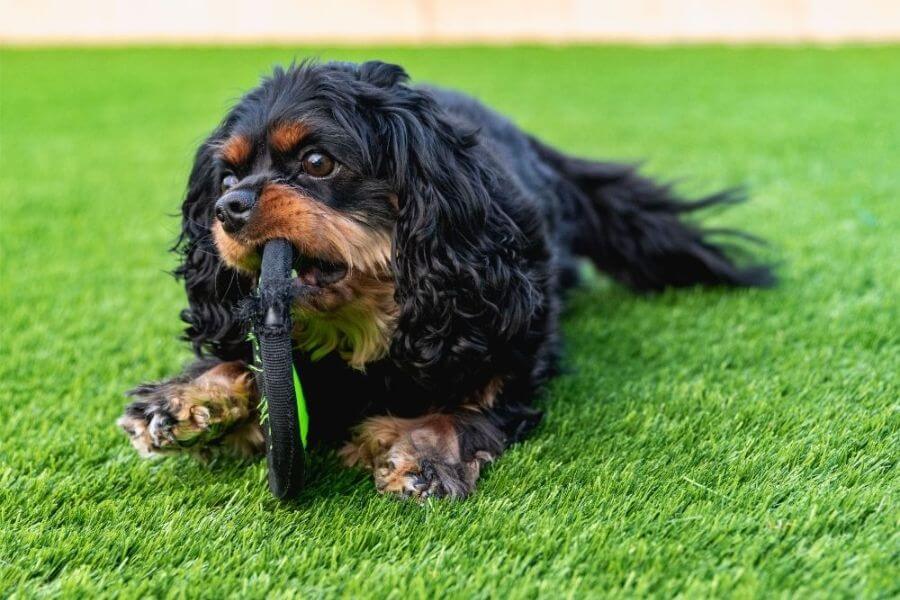
Children And Other Pets
Cavalier King Charles puppies are renowned for their gentle nature with children, making them ideal family companions.
These affectionate pups thrive in households with kids who understand how to interact respectfully with them.
While Cavalier King Charles puppies are sturdy compared to some toy breeds, children should still be taught proper handling to ensure the puppy’s safety and comfort.
When it comes to other pets, Cavalier King Charles puppies typically display remarkable adaptability and friendliness.
They generally coexist peacefully with cats and other dogs, especially when socialized early.
Their non-aggressive temperament makes them excellent companions for multi-pet households, though initial supervised introductions are always recommended.
Cavalier King Charles puppies particularly enjoy the company of other Cavaliers but also get along splendidly with breeds of various sizes.
For optimal socialization, consider taking your Cavalier King Charles puppy to puppy playgroups where they can interact with different breeds in a controlled environment.
Remember that each Cavalier King Charles puppy has a unique personality, so observe how your puppy responds to different animals and children.
With proper introduction and supervision, your Cavalier King Charles puppy will likely become a beloved member of your entire household, forming special bonds with both human and animal family members.
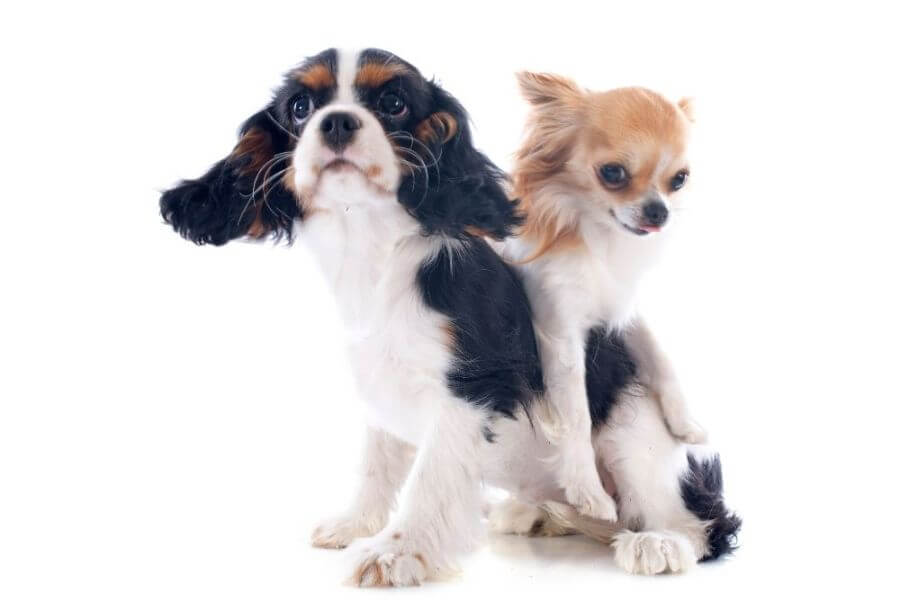
Other popular breeds
PUG
MALTESE
POODLE

